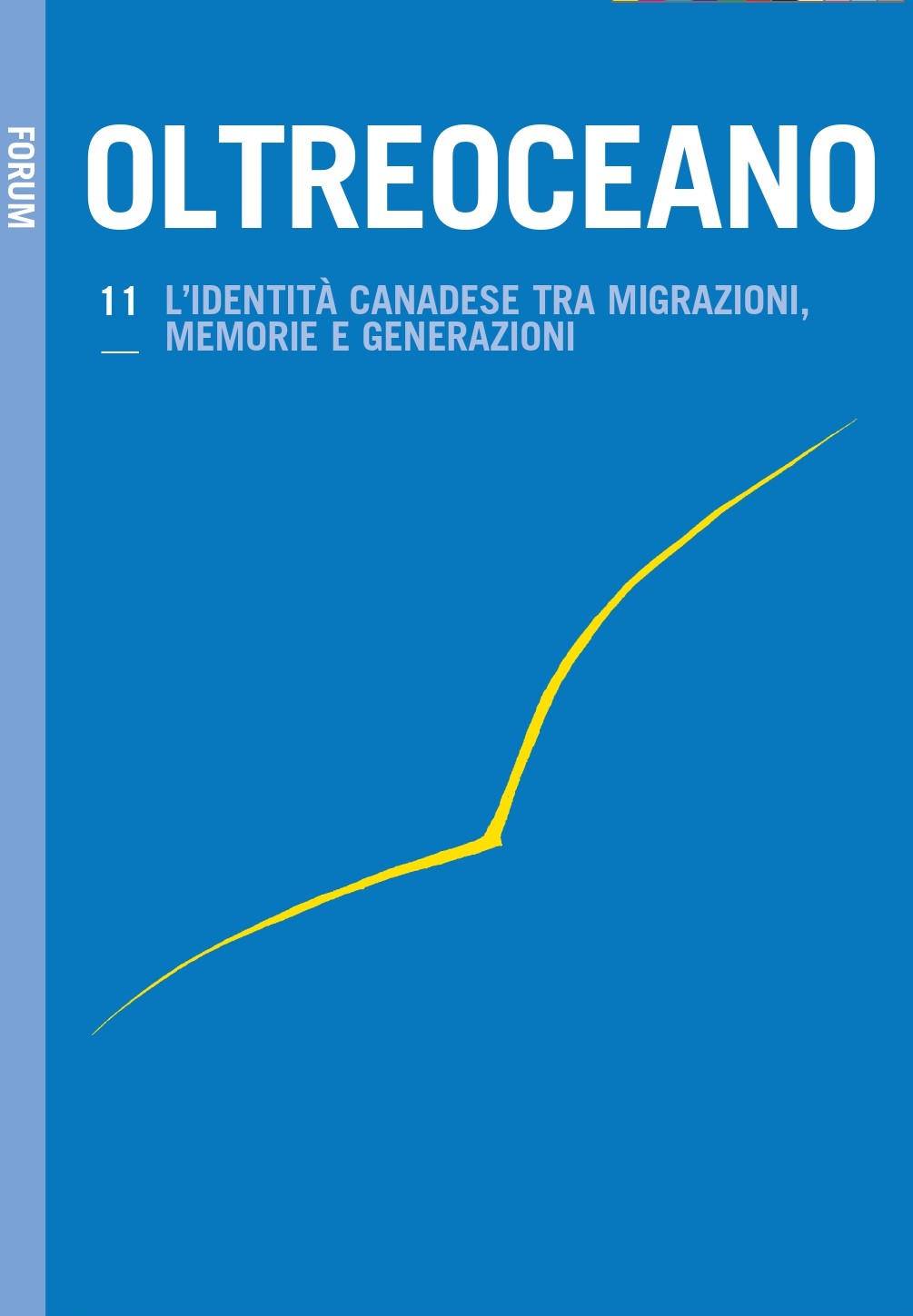La presenza di autori cileni in Canada dopo il 1973, con una intervista a José Leandro Urbina
Keywords:
esilio, scrittori latinoamericani, Canada, autori di seconda generazione, integrazioneAbstract
Negli anni Settanta del Novecento in Canada si sono formate numerose comunità di esuli latino-americani in fuga dalle dittature. All’interno di queste comunità è fiorita una significativa esperienza letteraria, che ha visto gli autori di origine cilena assumere un ruolo di rilievo. Il presente contributo vuole ripercorrere quell’esperienza, anche attraverso un’intervista a José Leandro Urbina, scrittore ed esule, per concludere con una prospettiva contemporanea sugli autori di seconda generazione.
The Presence of Chilean Writers in Canada after 1973, with an Interview with José Leandro Urbina
In the 70s of the twentieth century in Canada were formed numerous communities of Latin American exiles fleeing dictatorships. Within these communities a significant literary experience has flourished, and the authors of Chilean origin assumed a leading role. This paper aims to retrace that experience, even through an interview with José Leandro Urbina, writer and exile, to conclude with a contemporary perspective on the authors of the second generation.
Downloads
References
Aguirre, C. (2011): Something Fierce: Memoirs of a Revolutionary Daughter. Vancouver: Douglas & McIntyre.
Etcheverry, J. (1995): Notes on Latin American-Canadian Literature. In A. Ruprecht & C. Taiana (Eds.), The Reordering of Culture: Latin America, the Caribbean and Canada in the Hood (pp.119-122). Ottawa: Carleton University.
Hazelton, H. (2007): Latinocanadá: A Critical Study of Ten Latin American Writers of Canada. Montréal: McGill-Queen’s University.
Laborde, R. L. (2006): Toronto: Playwrights Canada.
Nómez, N. (1995): Latin American Writers in Canada: Integration and Distance, Writing at the Crossroads. In A. Ruprecht & C. Taiana (Eds.), The Reordering of Culture: Latin America, the Caribbean and Canada in the Hood (pp. 111-11). Ottawa: Carleton University.
Perron, S. (1995): Banished Between Two Worlds: Exiles in Chilean Canadian Literature”. In A. Ruprecht & C. Taiana (Eds.), The Reordering of Culture: Latin America, the Caribbean and Canada in the Hood (pp. 229-234). Ottawa: Carleton University.
Segura, M. (1998): Côte des Nègres. Montréal: Boréal.
Serafin, S. (2014): Letteratura migrante: Alcune considerazioni per la definizione di un genere letterario. Numero Speciale Migrazioni, diaspora, esilio nelle letterature e culture ispanoamericane della rivista on line Altre modernità, pp. 1-17.
Urbina Salas, J. L. (1981): Las malas juntas. Ottawa: Cordillera.
Urbina Salas, J. L. (1993): Cobro revertido. Santiago de Chile: Planeta.
Urbina Salas, J. L. (1995): Writing in Exile: Writing Nowere for Nobody?. In A. Ruprecht & C. Taiana (Eds.), The Reordering of Culture: Latin America, the Caribbean and Canada in the Hood (123-126). Ottawa: Carleton University.
Urbina Salas, J. L. (2015): Derrumbe. Santiago de Chile: LOM.
Downloads
Published
How to Cite
Issue
Section
License

This work is licensed under a Creative Commons Attribution-NonCommercial-ShareAlike 4.0 International License.
The authors undertake to comply with the following conditions, which are considered accepted at the time of submission of their contributions.
The sending of a text implies that it is unpublished and not submitted to be published elsewhere.
1. If accepted, the author shall confer on the publisher the right to publish and distribute it both in paper form and in the online electronic edition. The published articles will be downloadable and made available in open access.
2. Provided that it correctly indicates that the first publication took place in the journal Oltreoceano. Rivista sulle migrazioni the author has the right to: a) reproduce the article in separate extracts or collected in a volume; b) publish the article on their personal website or teaching site provided that these sites are of a non-commercial nature; c) deposit the article in online archives of a non-commercial nature, linked to the institution they belong to or as part of projects for the non-commercial dissemination and open access of scientific works.
The use of contributions by third parties, for commercial or otherwise unauthorized purposes, is not allowed. The publisher declines all responsibility for the unauthorized use of the material published in the journal.












